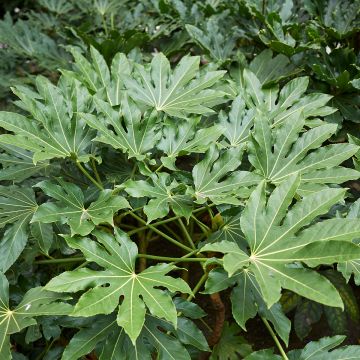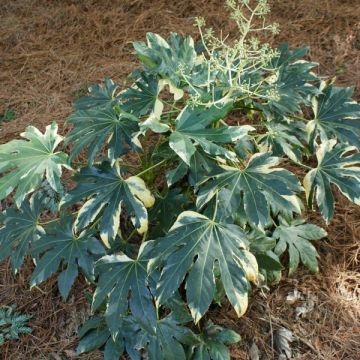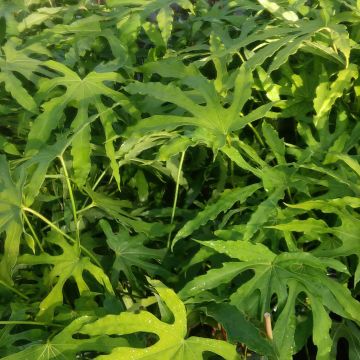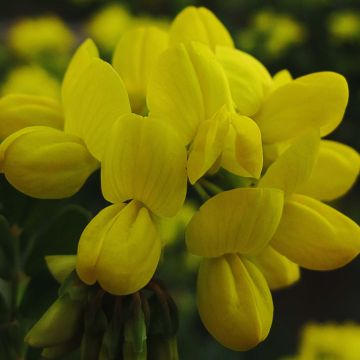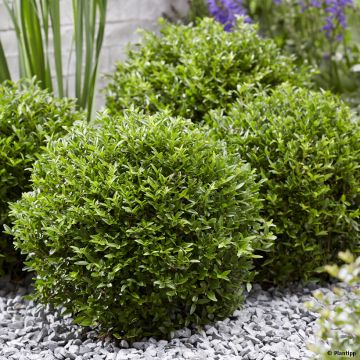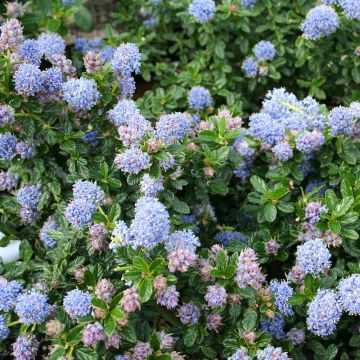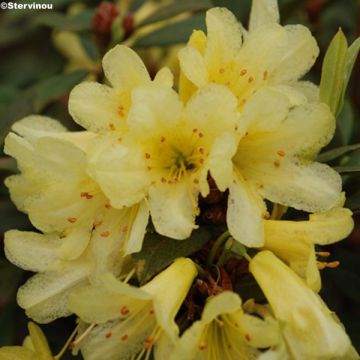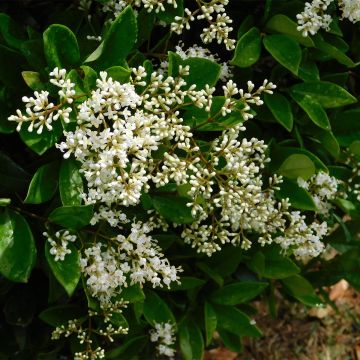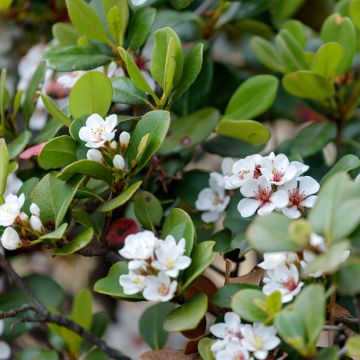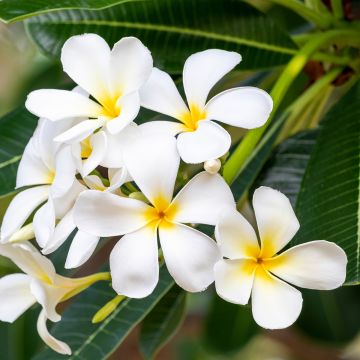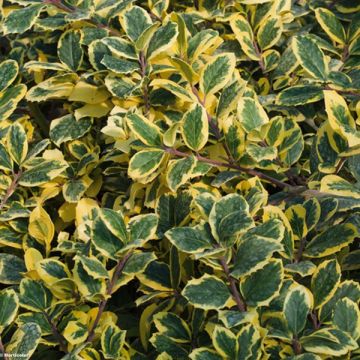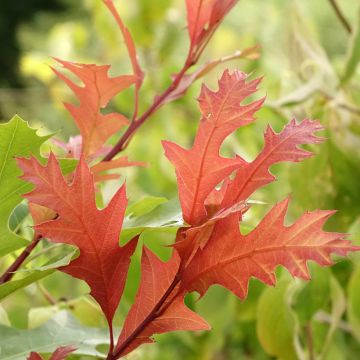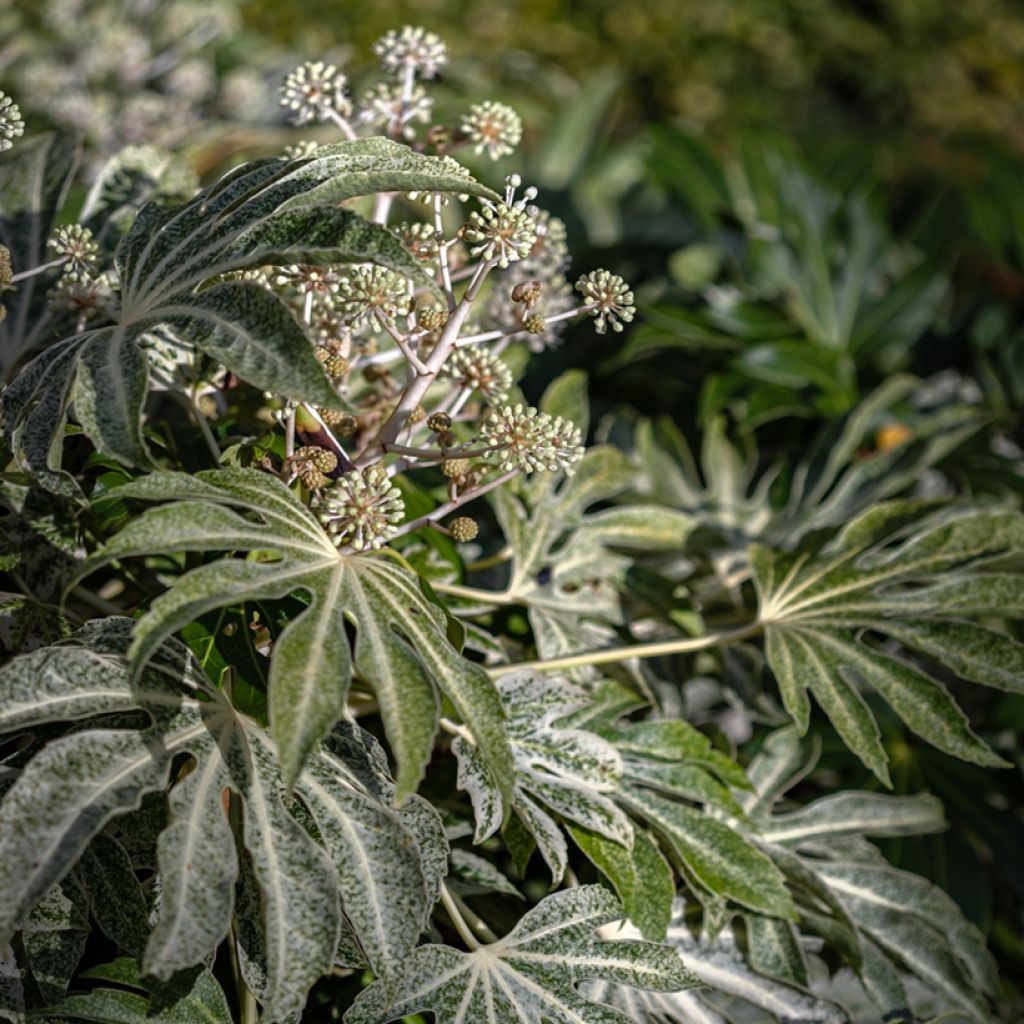

Fatsia japonica Spiders Web - Variegated False Aralia
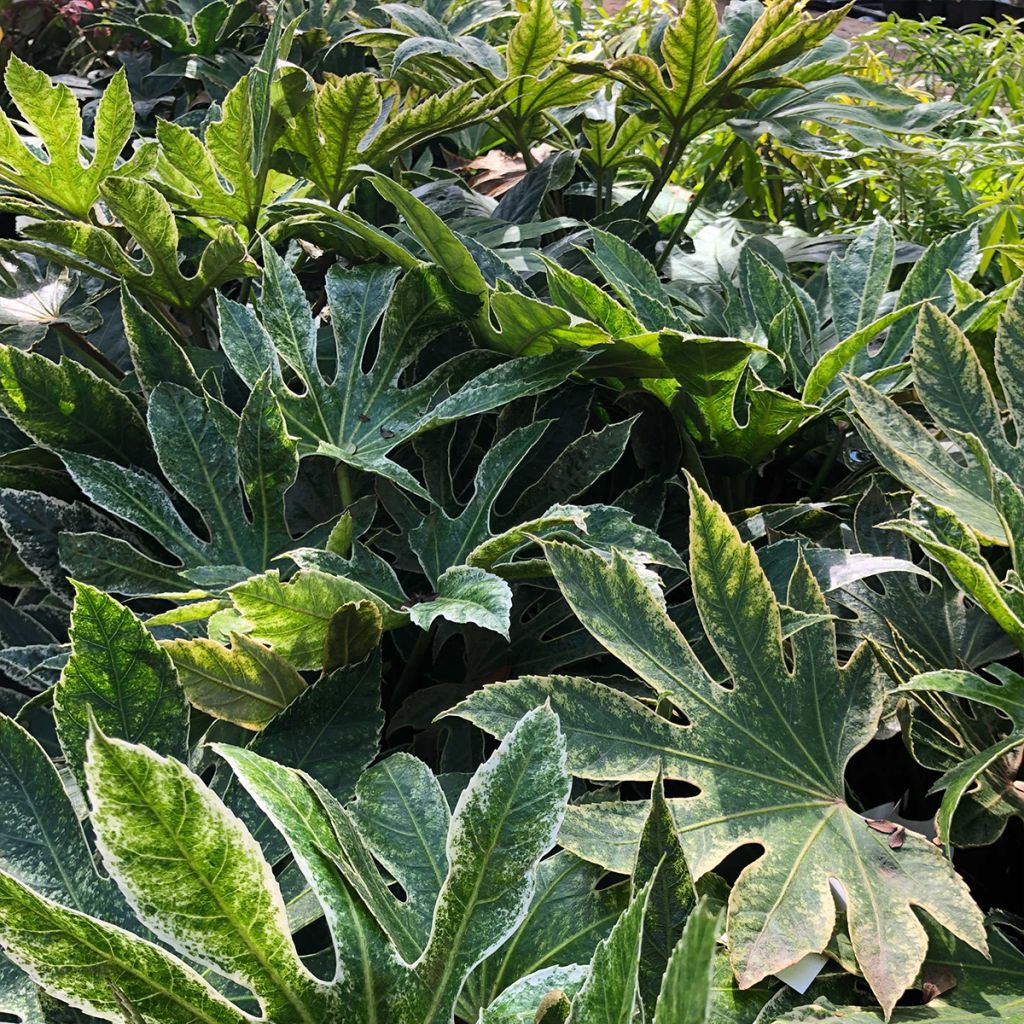

Fatsia japonica Spiders Web - Variegated False Aralia
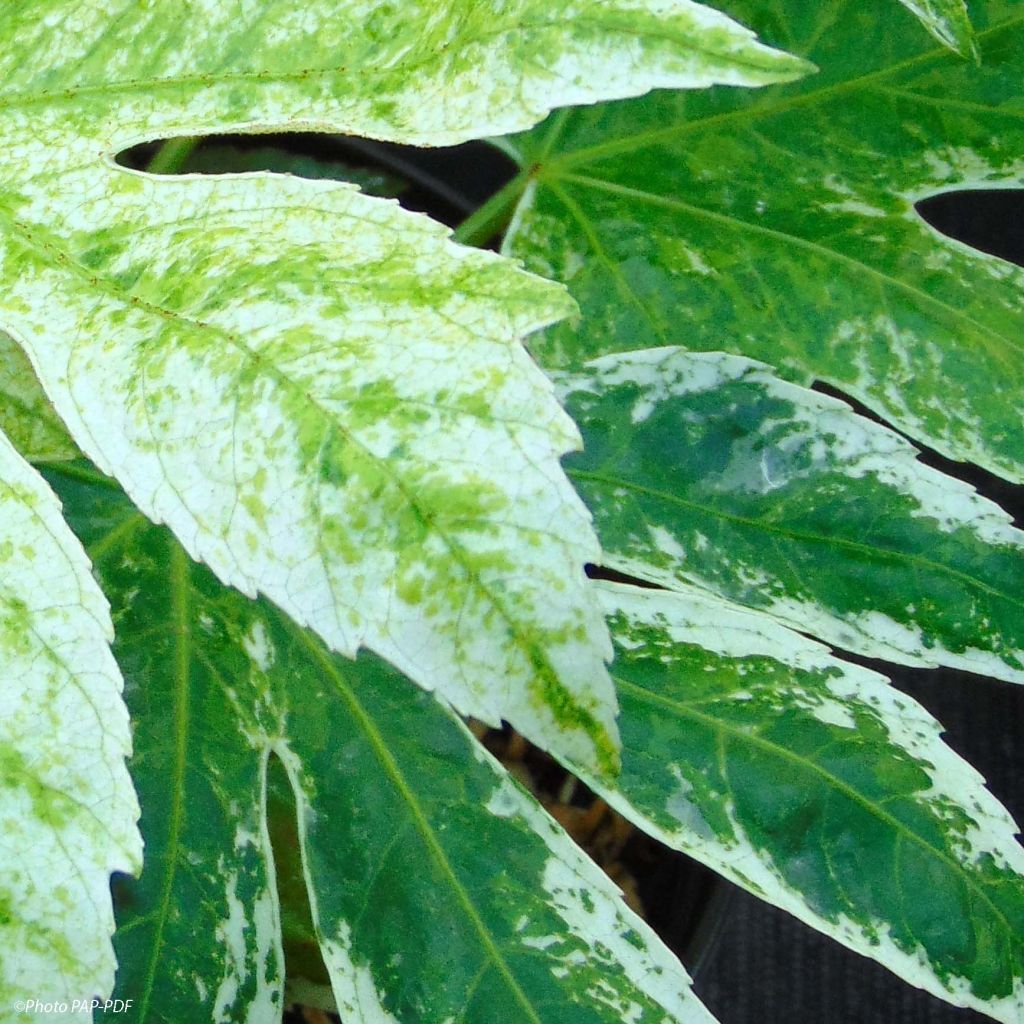

Fatsia japonica Spiders Web - Variegated False Aralia
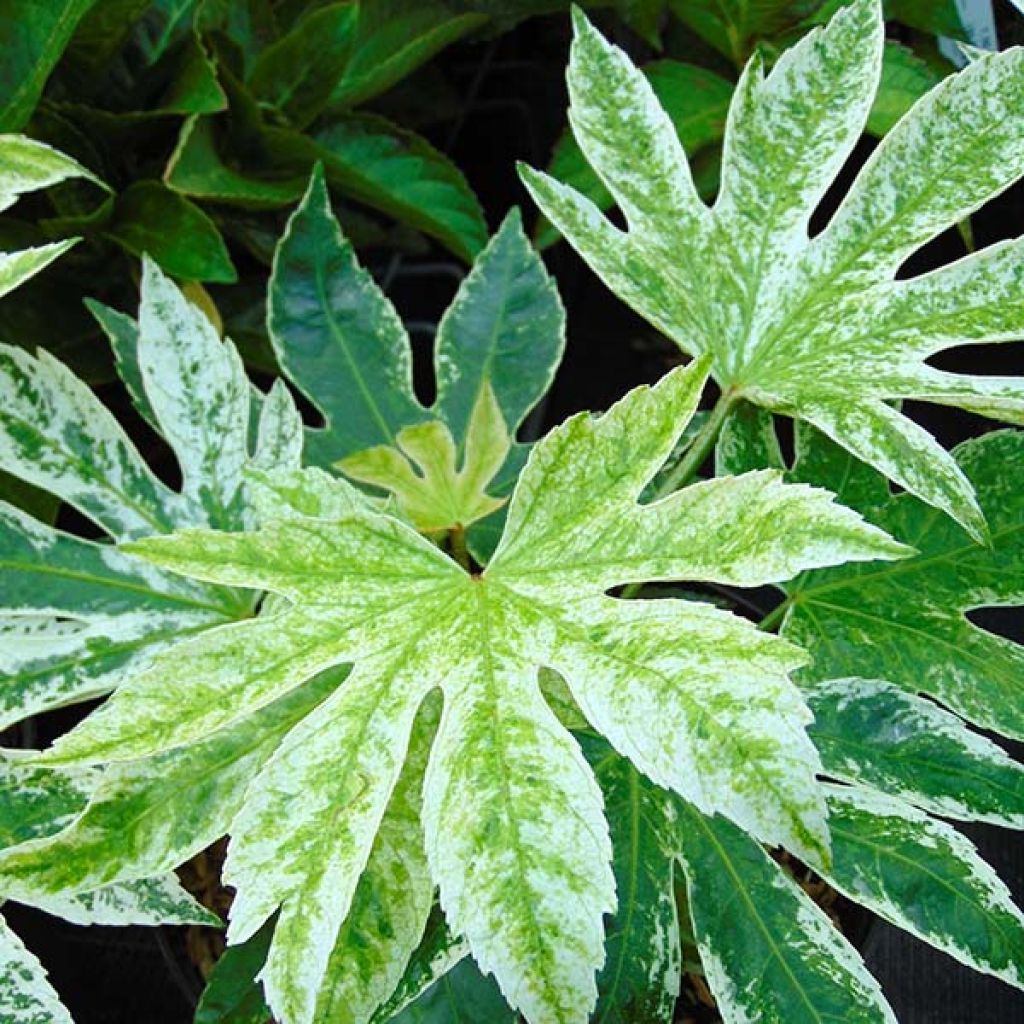

Fatsia japonica Spiders Web - Variegated False Aralia
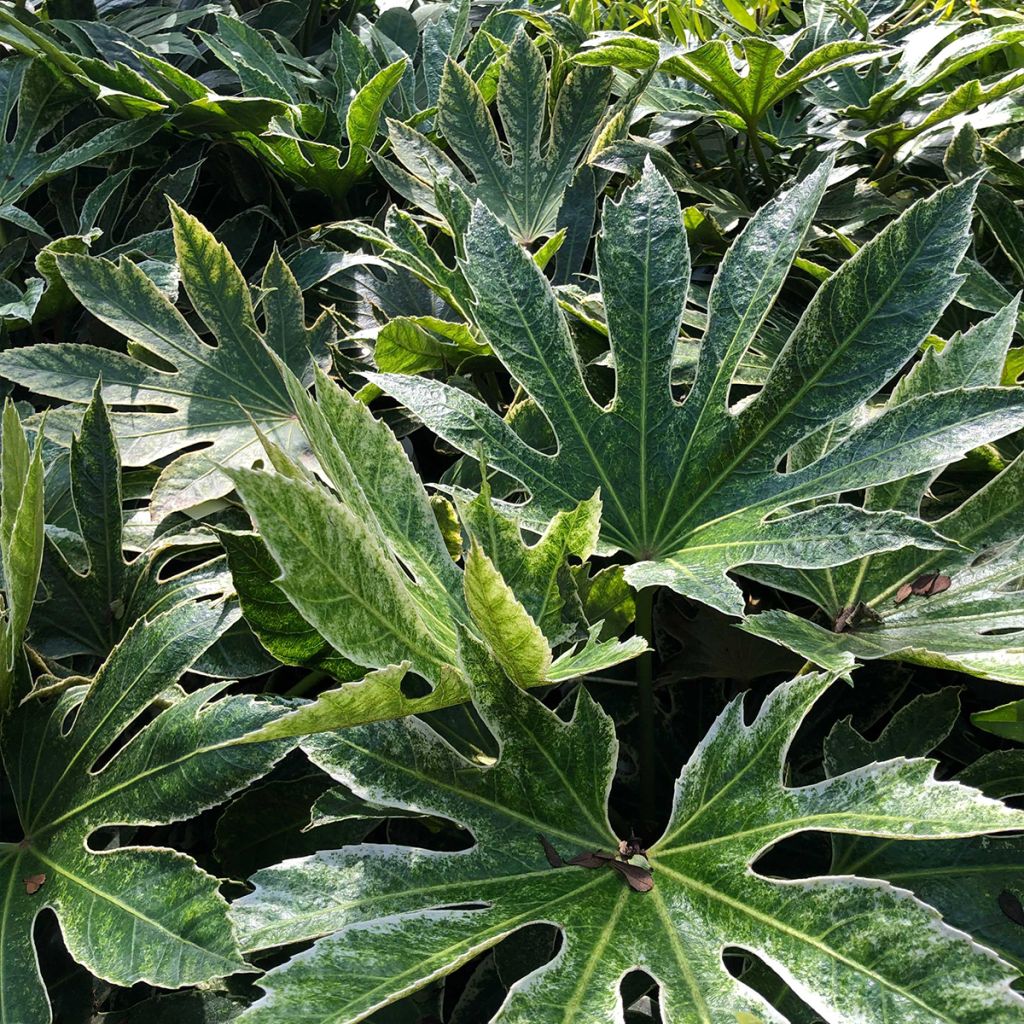

Fatsia japonica Spiders Web - Variegated False Aralia
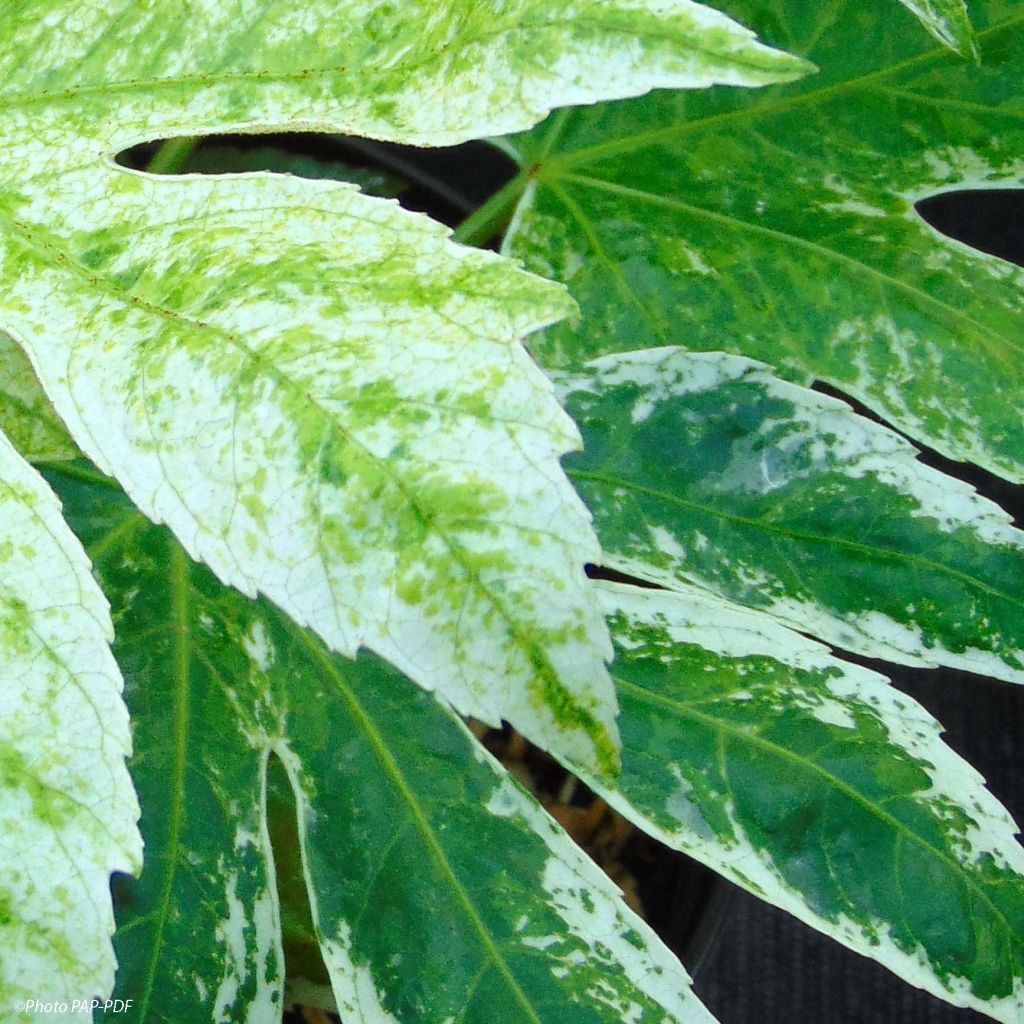

Fatsia japonica Spiders Web - Variegated False Aralia
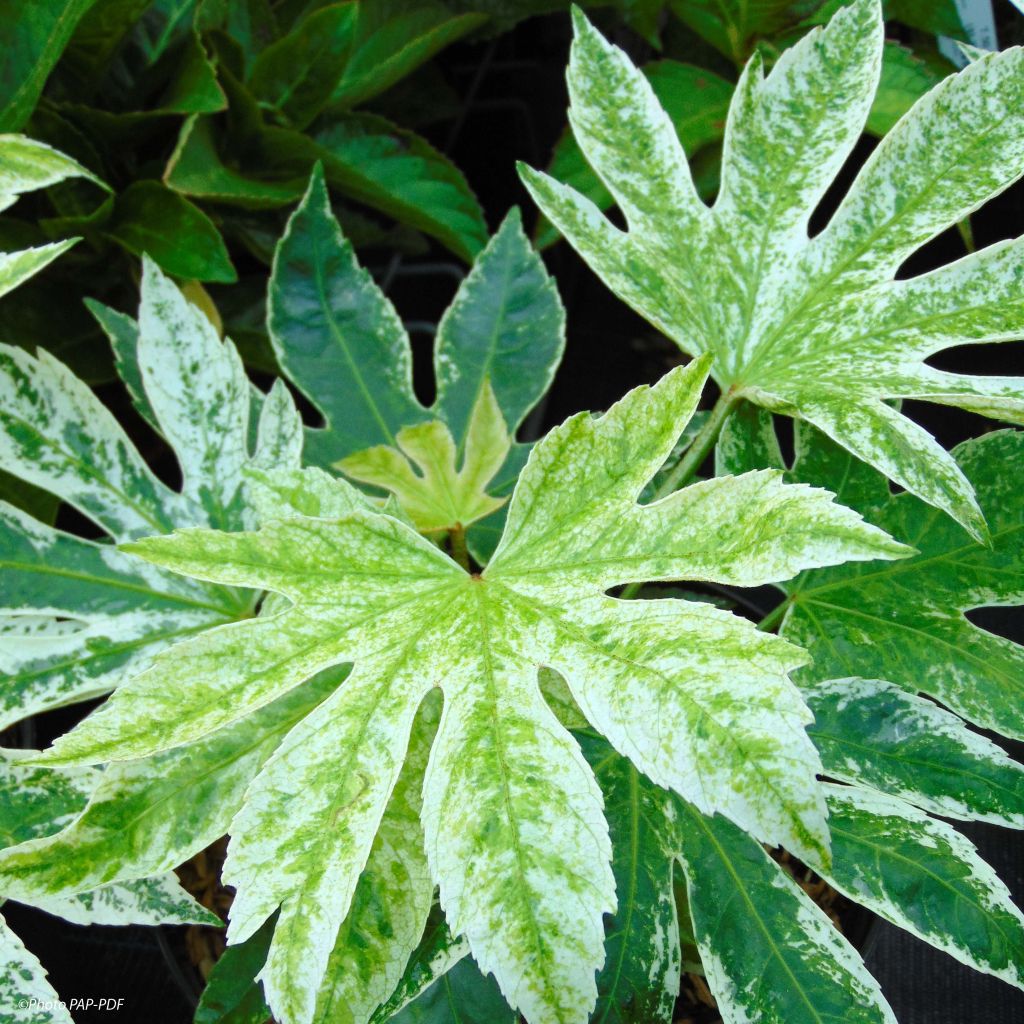

Fatsia japonica Spiders Web - Variegated False Aralia
Fatsia japonica Spiders Web - Variegated False Aralia
Fatsia japonica Spider's Web
Paperplant, False Aralia, Japanese aralia, Caster Oil Plant
This item cannot be shipped to the selected country
Delivery charge from €5.90
Delivery charge from €5.90
Delivery to Corse prohibited
More information
Schedule delivery date,
and select date in basket
This plant carries a 24 months recovery warranty
More information
We guarantee the quality of our plants for a full growing cycle, and will replace at our expense any plant that fails to recover under normal climatic and planting conditions.
From €5.90 for pickup delivery and €6.90 for home delivery
Express home delivery from €8.90.
From €5.90 for pickup delivery and €6.90 for home delivery
Express home delivery from €8.90.
Delivery to Corse prohibited: UE law prohibits the import of this plant from mainland France to Corse as part of the fight against Xylella fastidiosa. Please accept our sincere apologies.
More information

Does this plant fit my garden?
Set up your Plantfit profile →
Description
Fatsia japonica 'Spider's Web' is a variety of false aralia with a very exotic appearance, but is much hardier than it seems. An evergreen bush with a wide and rounded habit, it bears large palmate leaves with a shiny finish and a dark variegated colour splashed with small white-cream spots. At the end of summer, white-cream globular flowers bloom in large numbers, grouped in clusters that somewhat resemble ivy inflorescences. They are also honey-bearing and give rise to fairly decorative black fruits (these berries are not edible). This plant is perfect for shaded or semi-shaded areas of the garden. It thrives in a rather moist, humus-rich soil without excess limestone.
Fatsia japonica (syn. Aralia cordata), also known as Aralia or Japanese Fatsia, is a plant from the Araliaceae family, native to Southeast Asia, particularly Japan, Korea, and China. It is a giant herbaceous perennial, not to be confused with Aralia, which are true deciduous trees with spiny stems. The false aralia is composed of long petioles bearing very large leaves, giving it a rounded and spreading habit as well as a lush tropical plant appearance. Its growth is rather slow. Having initially enjoyed its moment of glory indoors, the Japanese Aralia has become, through inspired landscapers, an excellent garden plant, hardy and valuable for urban shady spaces. When grown in pots, it will not exceed 1.50 m (4.9 ft) in all directions, while it can easily reach 2 m (6.6 ft) when planted in the ground.
The cultivar 'Spider's Web' is a horticultural mutation of this species. It is mainly distinguished by its variegated and speckled white-cream foliage. Its superb palmate leaves, divided into 7 to 9 lobes, measure 15 cm to 30 cm (5.9 in to 11.8 in) in diameter. The evergreen leaves are borne on a branched false trunk giving it a very structured appearance and an exotic look. Tiny flowers appear from July to September, and are grouped in clusters of small white-cream pompoms. Later, they transform into equally decorative black beads, greatly appreciated by birds.
Fatsia japonica 'Spider's Web' prefers semi-shade, very fresh, light, and rather neutral to acidic soil. Hardy to -15° C (5° F), its foliage may suffer damage from the burning of snow or winter wind; therefore, choose a sheltered place away from cold and dry winds to plant it. In the garden or on a terrace, this Fatsia immediately creates an atmosphere of lush and exotic undergrowth while brightening shaded areas. Plant it to the south or west, against a wall or in a shady bed, in the company of luxuriant foliage plants, such as rodgersias, bamboo, Chinese palm or Gunnera. Ferns, hostas, and creeping bugles can also be planted at its base. Small gardens or urban patios will be transformed by its presence.
Report an error about the product description
Fatsia japonica Spiders Web - Variegated False Aralia in pictures


Plant habit
Flowering
Foliage
Botanical data
Fatsia
japonica
Spider's Web
Araliaceae
Paperplant, False Aralia, Japanese aralia, Caster Oil Plant
Cultivar or hybrid
Other Fatsia
Planting and care
Fatsia japonica 'Spider's Web' prefers slightly acidic soils, so it is necessary to enrich your planting hole with leaf compost. Lighten the soil with some coarse sand to improve drainage (beneficial in winter). Also, be careful to plant it in a sheltered location away from the wind and preferably in partial shade. Don't hesitate to water it in summer to maintain some moisture at the base of the plant. In winter, do the opposite and make sure it is dry. It is wise during this period to protect it with a winter cover. When the leaves of your false aralia turn yellow in winter, it is often due to excessively low temperatures. In summer, it is due to drought, so mist the plant with a little water. Prune any unsightly branches in spring. In autumn, you can remove the clusters of fruits as soon as they appear. This will encourage the leaves to grow larger.
Planting period
Intended location
Care
-
, onOrder confirmed
Reply from on Promesse de fleurs
Evergreen shrubs
Haven't found what you were looking for?
Hardiness is the lowest winter temperature a plant can endure without suffering serious damage or even dying. However, hardiness is affected by location (a sheltered area, such as a patio), protection (winter cover) and soil type (hardiness is improved by well-drained soil).

Photo Sharing Terms & Conditions
In order to encourage gardeners to interact and share their experiences, Promesse de fleurs offers various media enabling content to be uploaded onto its Site - in particular via the ‘Photo sharing’ module.
The User agrees to refrain from:
- Posting any content that is illegal, prejudicial, insulting, racist, inciteful to hatred, revisionist, contrary to public decency, that infringes on privacy or on the privacy rights of third parties, in particular the publicity rights of persons and goods, intellectual property rights, or the right to privacy.
- Submitting content on behalf of a third party;
- Impersonate the identity of a third party and/or publish any personal information about a third party;
In general, the User undertakes to refrain from any unethical behaviour.
All Content (in particular text, comments, files, images, photos, videos, creative works, etc.), which may be subject to property or intellectual property rights, image or other private rights, shall remain the property of the User, subject to the limited rights granted by the terms of the licence granted by Promesse de fleurs as stated below. Users are at liberty to publish or not to publish such Content on the Site, notably via the ‘Photo Sharing’ facility, and accept that this Content shall be made public and freely accessible, notably on the Internet.
Users further acknowledge, undertake to have ,and guarantee that they hold all necessary rights and permissions to publish such material on the Site, in particular with regard to the legislation in force pertaining to any privacy, property, intellectual property, image, or contractual rights, or rights of any other nature. By publishing such Content on the Site, Users acknowledge accepting full liability as publishers of the Content within the meaning of the law, and grant Promesse de fleurs, free of charge, an inclusive, worldwide licence for the said Content for the entire duration of its publication, including all reproduction, representation, up/downloading, displaying, performing, transmission, and storage rights.
Users also grant permission for their name to be linked to the Content and accept that this link may not always be made available.
By engaging in posting material, Users consent to their Content becoming automatically accessible on the Internet, in particular on other sites and/or blogs and/or web pages of the Promesse de fleurs site, including in particular social pages and the Promesse de fleurs catalogue.
Users may secure the removal of entrusted content free of charge by issuing a simple request via our contact form.
The flowering period indicated on our website applies to countries and regions located in USDA zone 8 (France, the United Kingdom, Ireland, the Netherlands, etc.)
It will vary according to where you live:
- In zones 9 to 10 (Italy, Spain, Greece, etc.), flowering will occur about 2 to 4 weeks earlier.
- In zones 6 to 7 (Germany, Poland, Slovenia, and lower mountainous regions), flowering will be delayed by 2 to 3 weeks.
- In zone 5 (Central Europe, Scandinavia), blooming will be delayed by 3 to 5 weeks.
In temperate climates, pruning of spring-flowering shrubs (forsythia, spireas, etc.) should be done just after flowering.
Pruning of summer-flowering shrubs (Indian Lilac, Perovskia, etc.) can be done in winter or spring.
In cold regions as well as with frost-sensitive plants, avoid pruning too early when severe frosts may still occur.
The planting period indicated on our website applies to countries and regions located in USDA zone 8 (France, United Kingdom, Ireland, Netherlands).
It will vary according to where you live:
- In Mediterranean zones (Marseille, Madrid, Milan, etc.), autumn and winter are the best planting periods.
- In continental zones (Strasbourg, Munich, Vienna, etc.), delay planting by 2 to 3 weeks in spring and bring it forward by 2 to 4 weeks in autumn.
- In mountainous regions (the Alps, Pyrenees, Carpathians, etc.), it is best to plant in late spring (May-June) or late summer (August-September).
The harvesting period indicated on our website applies to countries and regions in USDA zone 8 (France, England, Ireland, the Netherlands).
In colder areas (Scandinavia, Poland, Austria...) fruit and vegetable harvests are likely to be delayed by 3-4 weeks.
In warmer areas (Italy, Spain, Greece, etc.), harvesting will probably take place earlier, depending on weather conditions.
The sowing periods indicated on our website apply to countries and regions within USDA Zone 8 (France, UK, Ireland, Netherlands).
In colder areas (Scandinavia, Poland, Austria...), delay any outdoor sowing by 3-4 weeks, or sow under glass.
In warmer climes (Italy, Spain, Greece, etc.), bring outdoor sowing forward by a few weeks.

































